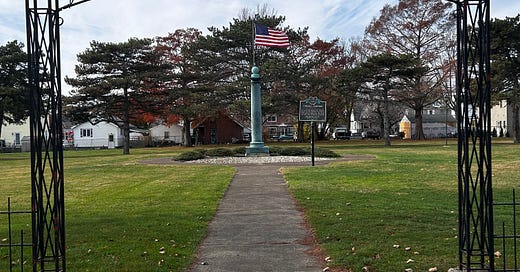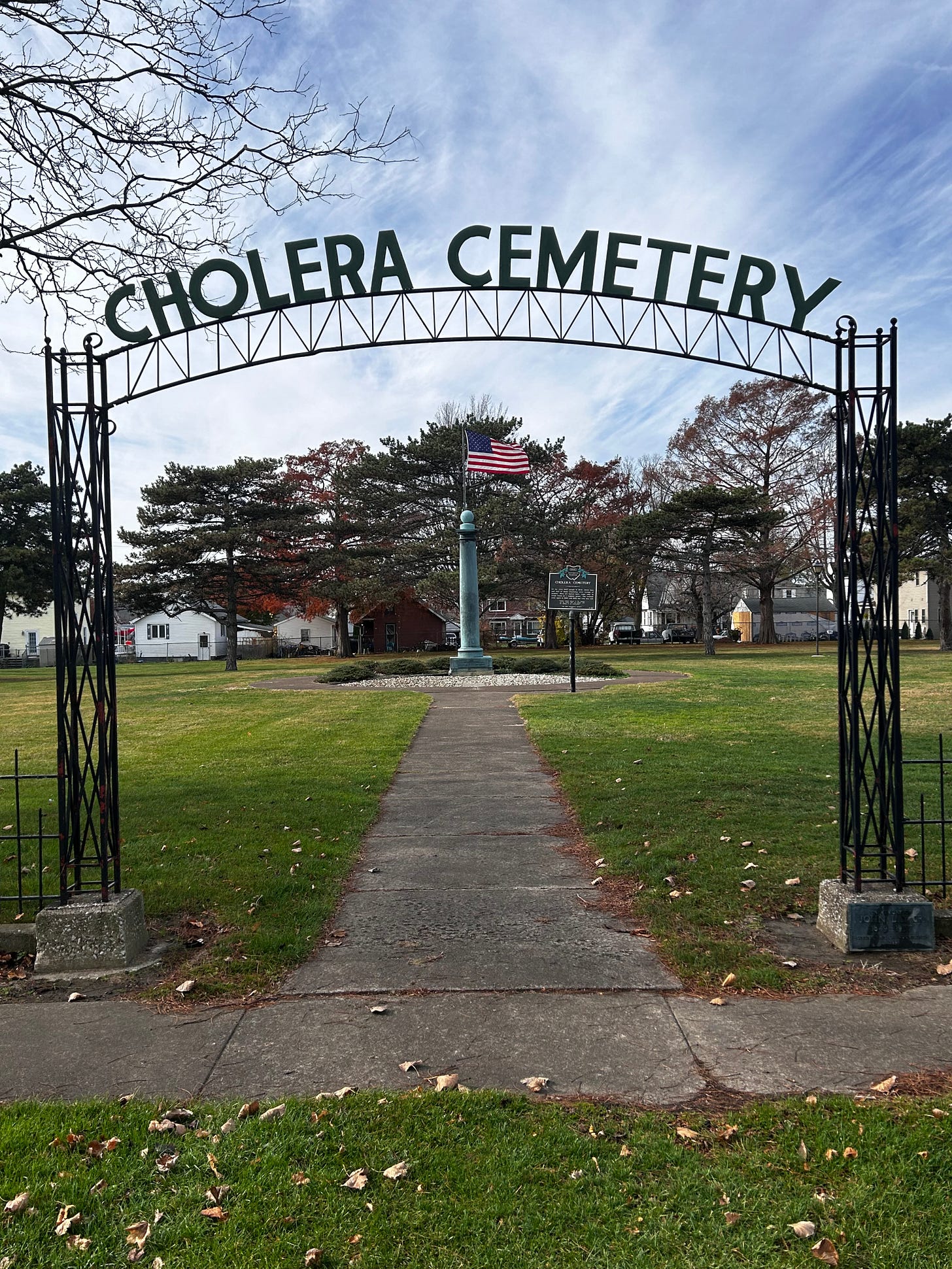Vanquishing by Vaccinating
Vanquishing by Vaccinating
November 18, 2024
Today’s public health topic is infectious disease and prevention. We’ve experienced the COVID pandemic, the scourge that has killed over 7 million people worldwide. Pandemics don’t magically go away, COVID is still with us, and there will be others. By definition, a pandemic is a widespread occurrence of an infectious disease that spreads over the world. The term is derived from the Greek words pandemos that means all and demos meaning people. Research shows that there have been 249 pandemics stretching back from 1,200 BC to 2024. Many were referred to as plagues. Let’s take a moment to focus on the cholera pandemic, because its story shaped public health and also resonates with current times.
Cholera is a bacterial infection caused by the Vibrio cholerae bacterium. Affecting the small intestine, the infection is typically contracted from infected water supplies. Outbreaks have occurred worldwide. It causes severe diarrhea and vomiting and is often fatal due to dehydration. On the surface, you may be thinking, “ahh, I can deal with dehydration because I’ve been there, done that.” In reality, without quick medical intervention, the intake of fluid cannot keep pace with the voluminous expulsion of water. This leads to hypovolemic shock, a condition characterized by exceedingly low blood volume, which causes a profound drop in blood pressure and oxygen. People cannot survive without blood and oxygen.
Between 1817 and 1923, cholera killed 1 million people. Enter a savvy physician, Dr. John Snow, who used the scientific method to identify how cholera was spreading in a crowded neighborhood in London, England. Snow concluded that people were getting infected from contaminated water at the Broad Street pump. Dr. Snow reported his findings to community leaders, who removed the pump handle, preventing access to the water and thereby preventing additional deaths. Of course, there was public outcry – much like mask mandates in our present time – but the infections dropped and subsequently, so did deaths. Snow went on to become known as the Father of Epidemiology. Epidemiology is the branch of science that deals with the incidence, spread, and control of diseases that affect public health. Public health is the science of improving and protecting the lives of communities.


Today, there is a vaccine against cholera called Vaxchora. This vaccine doesn’t work against other waterborne illnesses, but it is effective at reducing profuse diarrhea and vomiting. Fast forward to today. The mission of the United States Department of Health and Human Services is to enhance the health and well-being of all Americans. This past week, the President Elect tapped Robert F. Kennedy, Jr. (RFK Jr.) to head this department. Much has been written about RFK, Jr., who is a lawyer, conspiracy theorist, misinformation peddler, and vaccination opponent. He rejects science. As an anti-vaxxer, he encourages others to be as well. Not vaccinating leads to deaths from preventable diseases. To illustrate, RFK Jr. visited America Samoa. After spreading misinformation about measles vaccines, vaccination rates decreased, leading to a measles outbreak that infected 57,000 people and killed 83.
Thanks to vaccination, polio and measles had been eradicated in the United States. However, as a result of lagging vaccination rates, people are at risk. In fact, there have been outbreaks of measles in unvaccinated and under-vaccinated communities. For those who may not be familiar, polio (full name is poliomyelitis), is a viral infection affecting the brain and spinal cord that causes temporary or permanent paralysis. People infected spent much of their lives in an iron lung, which fitted over the entire body, enabling breathing.

The CDC estimates that 4 million deaths are prevented by childhood vaccination worldwide. While Americans thrive on individualism, we also live in society and depend on one another for survival – regardless of wealth. Afterall, there are only so many pillows, yachts, or spacecrafts a person can use, and none exist through spontaneous generation- they are made through a chain of resources and swaths of people. If enough of the population resists vaccination, the pathogens (disease-causing microorganisms) proliferate. When a high proportion of people have immunity (protection) from a pathogen through previous infection or vaccination, herd immunity is established. We rely on herd immunity to protect communities and each other. This is especially important for protecting the most vulnerable among us, including those with compromised immune systems, such as cancer patients, small children, and aging individuals.
There’s also a very dark side to consider when we quit vaccinating: we are vulnerable to bioterrorism. Foreign adversaries and evil doers can release deadly viruses, bacteria, toxins, or other biological agents to cause death or illness. This is yet another reason why we still need scientists in key positions and why we need companies to manufacture vaccines. Smallpox, Anyone? How about Anthrax? (Vaccines are available for both.) Our military personnel are also vaccinated against 17 major infectious disease threats.
Our time on this planet is finite. Let’s make those years as happy and healthy as possible. Yes?
References
American Medical Association Journal of Ethics
https://journalofethics.ama-assn.org/article/lesson-john-snow-and-broad-street-pump/2009-06
Broad Street Pump Photo
https://commons.wikimedia.org/wiki/File:Pump_Handle_-_John_Snow_.jpg
Centers for Disease Control and Prevention
https://www.cdc.gov/global-immunization/fast-facts/index.html
Centers for Disease Control and Prevention Museum
https://www.cdc.gov/museum/online/story-of-cdc/polio/index.html
CDC Public Health Image Library
https://phil.cdc.gov/Details.aspx?pid=12009
Current Status for Military Personnel
https://www.ncbi.nlm.nih.gov/books/NBK220954/
The Guardian
https://www.theguardian.com/us-news/2024/nov/14/trump-administration-rfk-criticisms
University of Cincinnati “The Great Pandemics of History Presentation”
https://www.uc.edu/content/dam/refresh/cont-ed-62/olli/s21/history-of-pandemics.pdf





